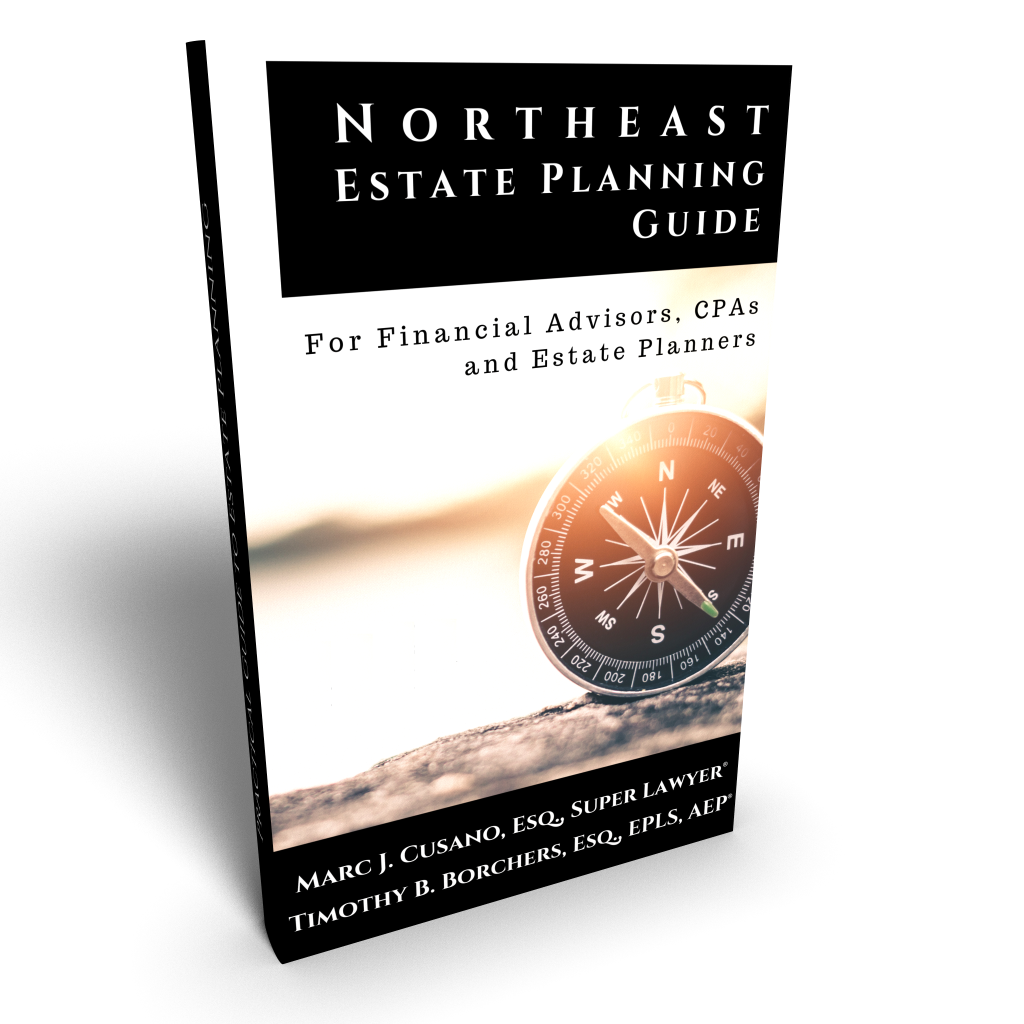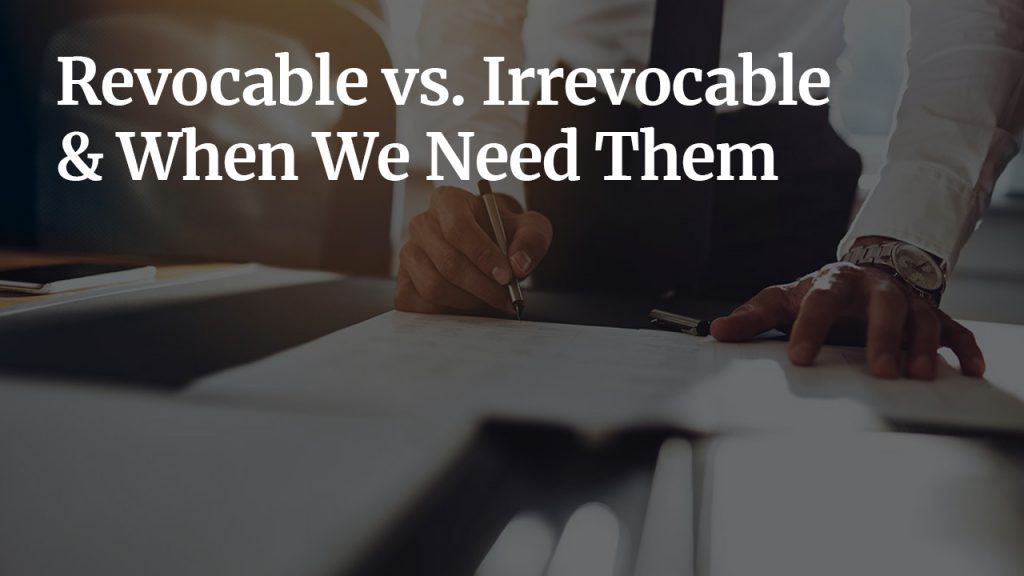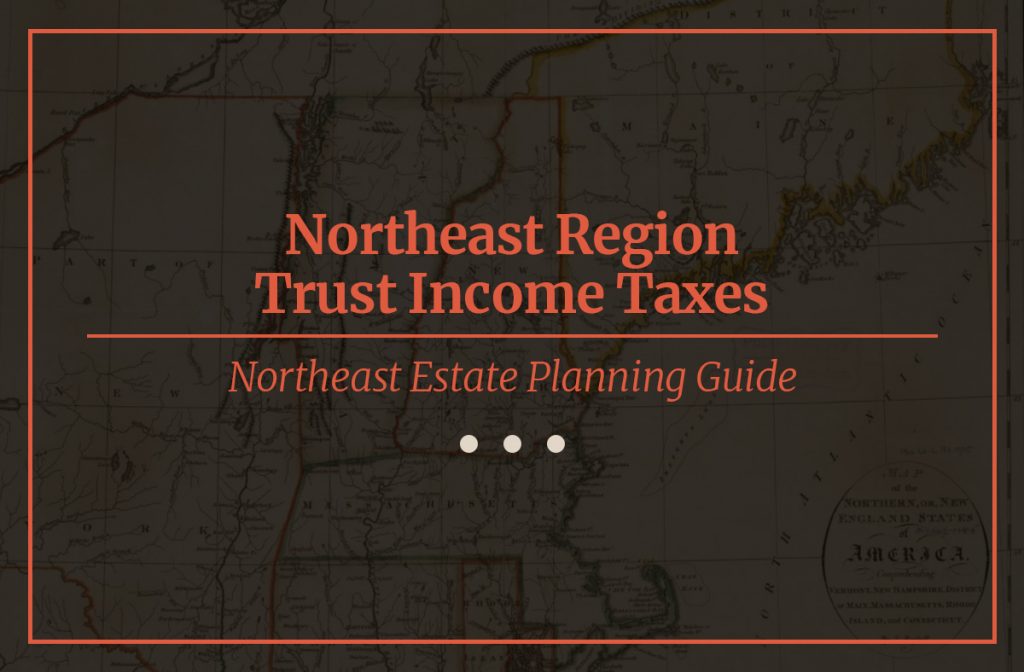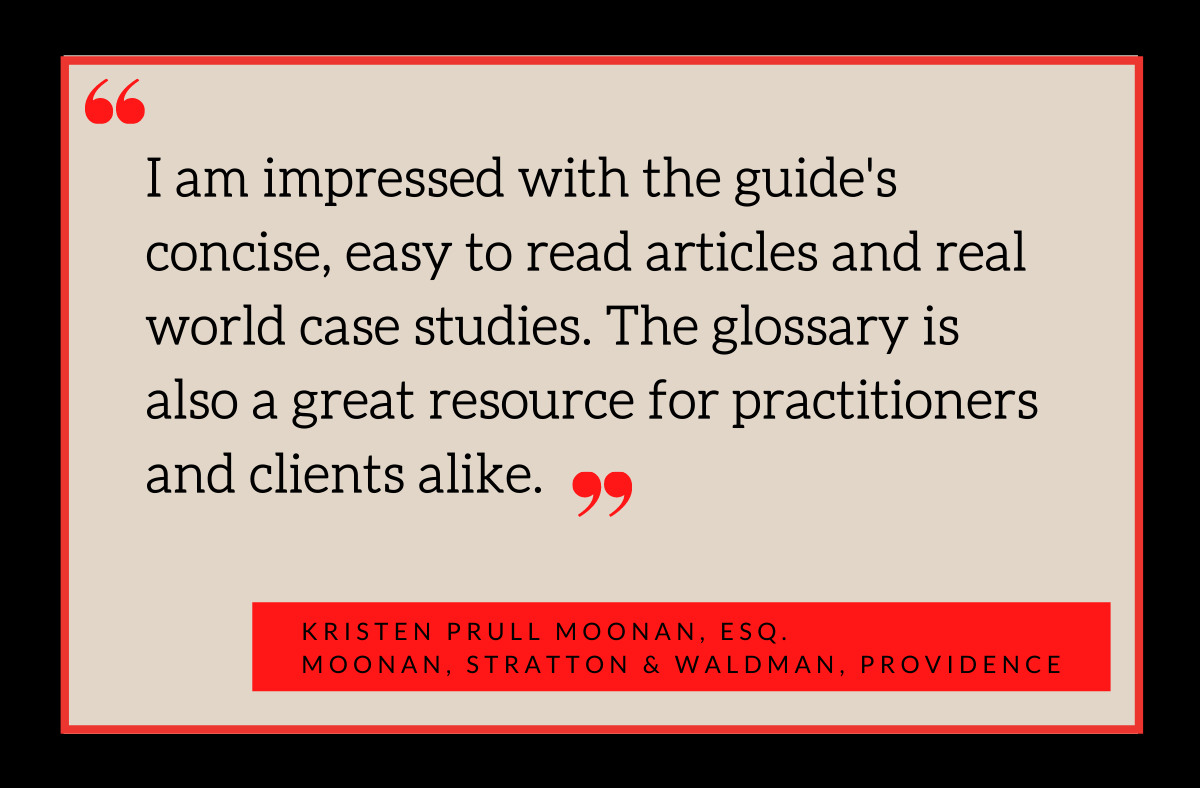Questions about Estate Planning? You’re not alone!

There’s a lot to know! And it changes every year.
Our Northeast Estate Planning Guide helps you find solutions to common problems with real-life examples. Over 45 terms are defined for your use.
Using this sharable, free Guide can help you help your clients, and advance your knowledge in the process.
There’s more: Don’t see what you’re looking for? Seen a new estate planning idea you want to understand? Looking for the words to be able to explain a strategy to a client? Submit your questions by clicking on the “Ask the Editor” button below.
Trending Estate Planning Techniques
As a result of new rulings, laws, or just new thinking, ideas are catching on that you need to know about. We demonstrate how a few of these techniques are being applied in planning situations.
The Spousal Lifetime Access Trust helps reduce the size of an estate, enabling your client to reduce estate taxes. A SLAT can also help protect assets from liabilities.
In the past, efforts to modify an irrevocable trust would require lengthy and expensive court proceedings. However, NJSAs have given parties an alternative.
Half of the states in the US have enacted decanting legislation (NY, NH, and RI in the Northeast) that outlines the methods by which property from one irrevocable trust can be decanted, or transferred, into another trust as a means of amending the un-amendable.
Following the SECURE Act, standalone retirement plan trusts are arguably more important than ever.
It remains popular to use irrevocable trusts not only for traditional estate tax savings, but increasingly, primarily for income tax savings.
Recent cases have highlighted the value of independent trustees with discretion to protect assets held in irrevocable (including inherited) trusts.
Learn the three questions clients should address when determining which charity to support and how much to give.
Massachusetts allows you to transfer your business interest upon death via a beneficiary designation. This transfer concept is typically referred to as “Transfer on Death” or “Pay on Death.” It allows you to designate a beneficiary for your stock ownership interest.
Common Planning Tools & Techniques
Tried and true tax and trust strategies are here to stay, but estate planners must still keep the concepts fresh and relevant. This section will help update your understanding so you can be better at sharing ideas with colleagues and clients.
The single best way to serve each of our clients is by participating as one part of a larger estate planning team.
A DAPT is a self-settled trust, which means the grantor (creator) of the trust may also be a discretionary beneficiary.
Should you immediately record your deed to your trust? Not always. It depends on your plans and other factors.
Should your clients transfer all of their accounts into their trusts or should they name their trust as the beneficiary?
Wouldn’t it be great if you could designate a beneficiary for your business, just like you can do with a life insurance policy?
An argument can be made for always planning as though your estate may be subject to state estate tax, no matter where you live at the present time.
While revocable trusts can address some goals, irrevocable trusts are needed when strong asset protection and advanced estate and income tax planning are desired.
Irrevocable trusts continue to be useful for asset protection and from having to spend down on care prior to qualify for Medicaid.
This Year’s Estate and Trust Taxes
Here are charts and quick summaries of tax codes in the northeast region. We also look at examples applying the tax code that are relevant anywhere.
Glossary of Key Estate Planning Terms
Concise, reliable definitions to help you and your clients understand a strategy, trust or technique. A necessary resource for every planner and staff member.
What Our Colleagues Are Saying
Editor-in-Chief: Marc J. Cusano, Esq., Super Lawyer® | Lead Author: Timothy B. Borchers, Esq., EPLS, CTFA, AEP®
Contributors: Debra Carrasquillo Hedges, Esq., Mackenzie Hager, Esq., LLM, Ron Ware, Esq.,
Northeast Estate Planning Guide © Copyright 2020-2025 Timothy B. Borchers


























